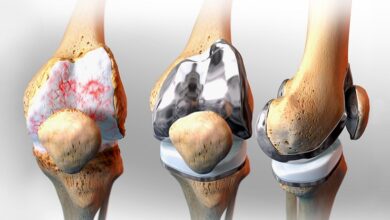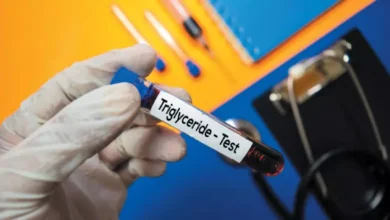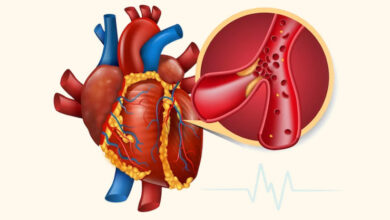
What is pedophilia, and who is called a pedophile? Pedophilia, or sexual desire for children (Pedophilia), is a type of sexual deviation in which a person experiences sexual excitement and satisfaction when faced with some imagination and engages in abnormal and intense sexual behaviors. Affected people usually engage in sexual relations with children (13 years old or younger) in their dreams or reality. Pedophiles are typically male and may be attracted to one or both genders. The type of communication they have with adults of the opposite sex also varies. In this article, we learn what pedophilia is and the causes, diagnosis, and treatment methods.
What is pedophilia, and who is a pedophile?
This disease, which is a mental abnormality, occurs in the form of intense sexual stimulation towards children under the age of 13. Pedophilic disorder can be seen in people who are willing to disclose this sexual deviation, and it can even be diagnosed in people who deny having it despite objective evidence. For a person to be considered a pedophile, he must act to satisfy his sexual desire or be disturbed as a result of this sexual desire and imagination. Without these two criteria, a person may have pedophilic sexuality but not have this disorder. The prevalence of pedophilia disorder is not completely clear. Still, the most common probability of this disease in males is relatively 3 to 5%. The presence of this disorder in women is deficient compared to men.
According to estimates, 20% of American children have been sexually abused, and this shows that pedophilia is a common sexual perversion. The aggressors are usually family, friends, or relatives. Sexual activities with children are different and may involve only looking at or touching the child’s body. But most sexual activities include oral sex or touching the child’s penis or the aggressor. Research shows that children who are neglected or feel alone are more likely to be sexually abused.
Pedophilia detection methods
The occurrence of any of the following symptoms indicates that a person has a pedophilia disorder:
- Existence of recurrent intense sexual thoughts and imaginations, desire, or engaging in behaviors involving sexual activity with an immature child (generally 13 years of age or younger) observed in a person for at least six months.
- These sexual desires drive the person to act out or cause him to be clinically disturbed, which hurts his social, professional, or other critical functional areas.
- The affected person must be at least 16 years old and at least five years older than the child victim. But people who have sex with 12 or 13-year-olds in their late teens are not pedophiles.
In addition to the above, when examining and diagnosing pedophilia disorder, it should be determined whether the person is only attracted to children or not, what gender they are generally inclined to, and whether they are only inclined to adultery.
Diagnosing pedophilia disorder is associated with problems. People with this disorder rarely ask for help voluntarily. Most of the counseling and treatment starts after the pedophile is caught in the grip of the law and is brought to court. To better recognize the signs of pedophilia, you can look at interviews, surveillance, or Internet reports made available through criminal investigations. These cases can provide helpful evidence for the diagnosis of this disorder. Watching a lot of child pornography is also a useful diagnostic tool. In addition, genital sexual arousal can be measured by sexual stimuli in the laboratory, and the possibility of pedophilia disorder can be found in a person.
People with sexual deviation usually have multiple disorders. Multimorbidity means the simultaneous presence of one or more mental illnesses in addition to the disease and primary condition. Sexually deviant people typically suffer from anxiety, severe depression, or mental disorders, as well as substance abuse disorders as well as sexual disorders.
Causes of pedophilia
The causes of pedophilia (and, of course, other sexual deviations) are not known. However, this disorder is usually seen more in families with such a history. However, it is not clear whether pedophilia is genetic or a learned behavior. On the other hand, it has not yet been proven that factors such as abnormality in male hormones or serotonin in the brain can cause pedophilia or sexual deviation. It is also said that having the experience of sexual abuse in childhood can also be a potential factor in the development of pedophilia, which has not been proven.
According to behavioral learning models, children who are victims or witnesses of inappropriate sexual behavior learn to imitate such actions, and this type of behavior is reinforced in them. These people are deprived of regular social and sexual contact, and they feel pleasure and satisfaction by performing behaviors that are not accepted by society. Physiology models regarding pedophilia disorder focus on the relationships between hormones, behavior, and the central nervous system and pay attention to aggressive behaviors and male sex hormones.
Some people may realize their sexual interest in children during puberty. Pedophilia may be a lifelong condition, but the disorder includes elements likely to change over time. Among these elements, we can mention confusion, psychosocial chaos, and the tendency to act in response to sexual desires.
Treatment of pedophilia
Pedophilic disorder can be treated with medication and psychotherapy. Prescription drugs include antiandrogen drugs that are suitable for reducing libido. Medicines such as medroxyprogesterone (Provera) and leuprolide acetate (Lupron) are of this type. Selective serotonin reuptake inhibitors (SSRIs) may also be prescribed to treat compulsive sexual disorders as well as to reduce libido. Usually, the dosage of these drugs is much higher than the drugs prescribed for depression. SSRIs include sertraline (Zoloft), fluoxetine (Prozac), fluvoxamine (Luvox), citalopram (Celexa), and paroxetine (Paxil).
The intensity of sexual desire does not always indicate sexual deviance, and a large amount of testosterone secretion does not make men prone to sexual deviance. Hormones such as medroxyprogesterone acetate and cyproterone acetate reduce the amount of testosterone secretion. As a result, sexual desire and aggressive behaviors decrease. These hormones reduce the number of erections, sexual fantasies, and the initiation of sexual behaviors such as masturbation and sexual intercourse. Hormone therapy is usually performed along with behavioral and cognitive therapies. Antidepressants such as fluoxetine can successfully reduce libido but do not affect sexual thoughts and ideas.
Research has shown that behavioral-cognitive patterns are effective in treating people with pedophilic disorders. The following can be mentioned from this model:
Aversive conditioning, correction of cognitive distortions, sympathy for the victim (showing videos of the consequences of inappropriate behavior to victims), courage training (including social skills training, time management, and structure), prevention of relapse of pedophilic disorder (identifying the triggers that cause this behavior and seizures in high-risk situations and how to disrupt these stimuli), monitoring systems (family attention to the affected person and monitoring his behavior) and of course lifelong care.
In aversive conditioning, by using negative stimuli, the occurrence of a specific behavior is reduced, or that behavior is eliminated. This treatment method is hidden sensitization in which, first, the patient is placed in a calm and comfortable state while conjuring scenes of inappropriate behavior in his mind. After that, he is mentally placed in an uncomfortable state. Aversive conditioning is similar to covert sensitization, but the adverse event that follows is actual. For example, the therapist sprays an unpleasant smell into the environment. The goal is to associate that inappropriate behavior with an unpleasant odor. For example, they show the aggressor a video of their crimes, and by using an adverse event, they try to make that experience unpleasant and disturbing for the aggressor.
Positive conditioning methods also focus on teaching social skills and substituting more appropriate behaviors. For example, with reconditioning, they give the patient immediate feedback and help him change his behavior. For example, a person may be connected to a kind of biofeedback device related to light and taught to keep the light of the device within a specific color range when exposed to sexually stimulating substances.
Cognitive therapies include correction of cognitive distortions and empathy training. In the treatment of correction of cognitive distortions, the pedophile’s idea that the child also likes to have sex is corrected. For example, if a pedophile sees a little girl in shorts, he may mistakenly think, “She wants me.” By educating the pedophile, they correct this wrong thinking in him. Also, in empathy training, they show the victim’s psychological state and the pain they suffer from the criminal. Therapists try to evoke his sense of empathy so that he realizes the harm he has caused to his victim.
Predicting the treatment of pedophiles is very difficult. Usually, pedophiliacs cannot easily let go of their long-term sexual fantasies about children. With great effort, doctors can reduce the intensity of pedophile perceptions in affected people and teach the patient the tricks to deal with it. But before that, the affected person must accept that he has this disorder and be willing to be treated. In this case, the treatment will be successful. Each treatment method has different results, such as dynamic psychotherapy, behavioral techniques, chemical processes, and surgical therapies. End-of-life care can be a realistic and practical approach.








